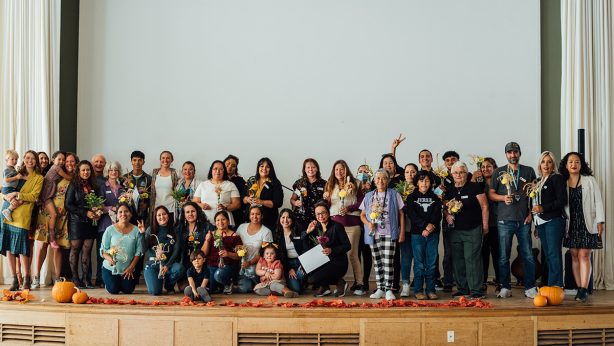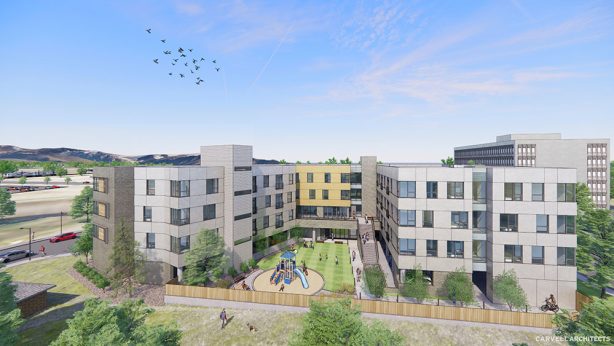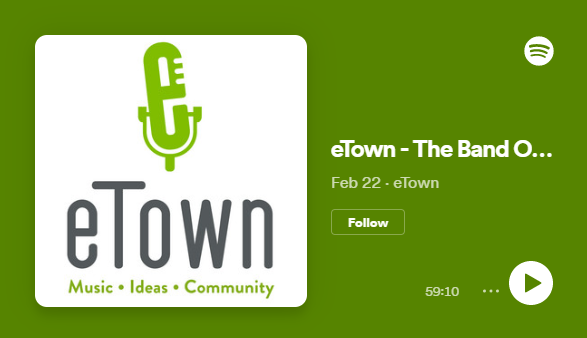PC’s For People Converts Recycled Computers from Scrapped to Salvaged
If you had the chance to read our recent story featuring Blue Star Recyclers, you might have asked the questions, “But what about any salvageable computers and other electronics? Does everything get recycled, shipped away and melted down?” Well the answer is no, not quite. Blue Star thought this through upon opening their Denver operations in ULC’s Social Enterprise Foundry warehouse, and invited PC’s for People to share their space.
Founded in Minnesota in 1998, PC’s for People does exactly what its name suggests, and offers refurbished and affordable computers to the community. They opened their Denver doors in July of 2015, when Blue Star made a shared space proposal. In turn for salvaged computer parts, PC’s for People pays Blue Star Recyclers a percentage on each computer sold.
David Little is the Denver Area Program Manger for PC’s for People, and one of two full-time employees at the Denver branch. Aside from four part-time volunteers, the staff is minimal to say the least. Yet don’t let their small staff size fool you. Little said the company currently processes about 100 computers each month, but has the capability to do almost 500 in the same time frame. (Recycle your computers! It’s this easy!)
Little has been with the company since the Denver area office opened its doors. Having been in the industry since the 1970’s, Little learned his computer skill set with magnetic tape and computer punch cards. A computer four decades ago took up the space of a small office, which can now be contained by the likes of a smart phone. With his experience, he made the perfect fit for the job.
“I know computers,” Little explained. “I’ve done retail sales and I’ve worked for not for profits…and with my background it has made for a very easy way for me to join this organization.”
And now that PC’s for People has almost one year under its belt in Denver, Little feels hopeful for the next year ahead. In the next calendar year, he said the organization is hoping to triple in size, and grow to six or seven full-time employees. And one of these could even be a current Blue Star employee, Phillip, who works on the line helping to reassemble computers. Little explained that Phillip is excellent with computers, and his next clear step would be in the software and refurbishing department.
“He doesn’t communicate in a traditional manner, and as a result it might be difficult for him to get that opportunity,” Little said. “So Blue Star gave him that first opportunity and we hope to offer him that next progression.”
Little also remarked on Blue Star’s employees as a whole, complimenting their high attention to detail and obvious love for computer work. He said that PC’s for People truly benefits from their relationship with Blue Star, as well as with the Urban Land Conservancy.
“For us to come into Denver, with Denver’s high market rates, it would have been almost impossible for us to have found an affordable place like this and to find a partnership with somebody like Blue Star,” Little said.
And with the current business model and partnership, PC’s for People’s growth looks promising. While their ideal model is to be completely self sufficient (with any computers sold subsequently paying for the next computer to be fixed), Little explained that the organization also looks for grants to aid in the distribution of computers to children and families in need, also known as PC’s for Kids.
In order to find funding to aid in distribution, PC’s for People reaches out to various businesses, community foundations and philanthropies to invest. For example, Little explained that a $15,000 investment would allow PC’s for People to give 200 computers to families in need. This allows adults to apply for jobs with more convenience, and for children to simply get their homework done.
According to Little, once you start the fourth grade in Denver Public Schools, your homework is almost entirely online. While some children can stay after school and use the computers there, and others go to the library, there is simply not enough supply of computers for the current demand. While PC’s for People recently distributed 155 laptops at a nearby school, the company needs more funding.
“I have 500 computers ready to distribute to schools, and no school because I don’t have the funding,” Little said.
According to the PC’s for Kids newsletter, the U.S. Census Bureau’s American Community Survey data estimates that, “five million households with school-age children do not have high-speed internet service at home.” This makes completing online homework a near impossible task.
Little recognized that simply gifting and selling refurbished computers is not the final answer, as utilizing the Internet is a critical component in today’s technology savvy climate. That is why they have partnered with both Mobile Citizen and Mobile Beacon, companies that both have contracts with Sprint to use their cell phone towers for Internet hotspots.
“In this day and age, you can’t get a job, you don’t read the newspaper anymore, you can hardly apply for social services [without a computer],” Little said.
This partnership has allowed PC’s for People to sell mobile hotspot devices at a significantly discounted price alongside their computers. It is then put back in the consumer’s hands for their chosen month-by-month Internet service.
One thing is clear: the mobile devices, laptops, smart phones and wifi connections some of the population is so widely accustomed to is simply not the status quo. And in order for the millions of households to stay up to date in today’s modern world, it takes the support of organizations like PC’s for People.



